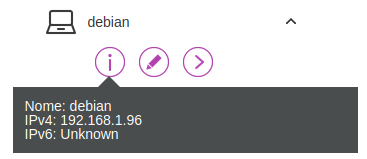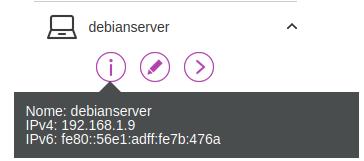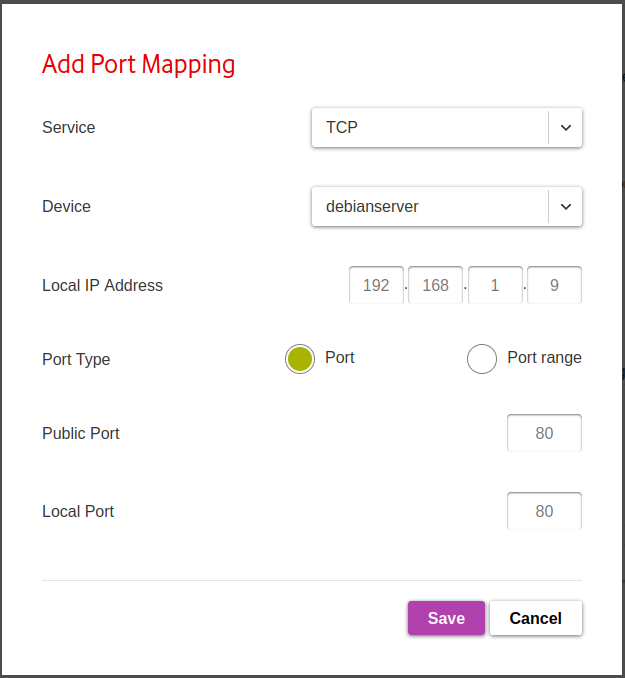Hello! I (tried, at least) converted an old laptop to a Debian home server, and I was trying to set up duckdns.org and to enable port forwarding on my router. internet connection was working, I installed packages, docker, immich, etc, and then suddenly (I don’t know exactly when) it refuses to connect to the internet. It does connect to local addresses (I can ssh into it) but ping google.com and any other internet-involving command fail. I had set up a rule on the router to forward port 80 to the device’s port 80, but I then removed the rule and it still does not connect to the internet. I rebooted the router but nothing changed. Any idea what could be? the router is a Vodafone router.

I changed the hostname to debianserver but on the router it is still written debian. Also, it’s the only device with unknown ipv6
thanks in advance!
EDIT: I rebooted again the server, and now ipv6 is not unknown anymore, and the hostname is correct. however, it still does not connect to the internet

EDIT 2:
only one device (debianserver) has this problem, other devices work as before
EDIT 3:
I don’t know if it’s useful or not, but if I boot a live debian USB in the server internet works
SOLUTION: aaaaand no it does not work, after restarting docker it seems to work because all the brodges are yet to be created and it takes some time, after like 30 seconds it does not work as before :(
- edit the file
/lib/systemd/system/docker.service - append the flag
--bip=192.168.3.1/24toExecStart=.... systemctl daemon-reloadsystemctl restart docker
docker was the fucker that messed everything up and made me lose a few hours!
EDIT 4:
it seems that ip route flush 0/0 restores the internet connectivity until reboot… I don’t know what does this means but can be a temporary workaround I guess? I really have no idea how to solve this
FINAL EDIT: I gave up. I removed debian and installed fedora, and now it all works like a charm


You mentioned you changed firewall rules for that device. Any chance you have set outbound rule instead of inbound rule?
Anyway, what’s the output of
ip route?tubbadu@debianserver:~$ ip route 0.0.0.0 dev veth60f206e scope link 0.0.0.0 dev veth48a6716 scope link 0.0.0.0 dev vethdf7381d scope link 0.0.0.0 dev veth59e46aa scope link 0.0.0.0 dev vethac4830e scope link default dev veth60f206e scope link default dev veth48a6716 scope link default dev vethdf7381d scope link default dev veth59e46aa scope link default via 192.168.1.1 dev enp1s0 169.254.0.0/16 dev vethac4830e proto kernel scope link src 169.254.241.201 169.254.0.0/16 dev veth59e46aa proto kernel scope link src 169.254.97.105 169.254.0.0/16 dev vethdf7381d proto kernel scope link src 169.254.212.49 169.254.0.0/16 dev veth48a6716 proto kernel scope link src 169.254.26.74 169.254.0.0/16 dev veth60f206e proto kernel scope link src 169.254.212.242 172.17.0.0/16 dev docker0 proto kernel scope link src 172.17.0.1 linkdown 172.18.0.0/16 dev br-56cf32fc7cde proto kernel scope link src 172.18.0.1 192.168.1.0/24 dev enp1s0 proto kernel scope link src 192.168.1.9 192.168.1.1 dev enp1s0 scope linkAll I did was doing this and press Save:
(now I rewrote it just to take the screenshot)
after internet stopped working I edited it to set the port to 443, and then I removed the rule. there are no rules now